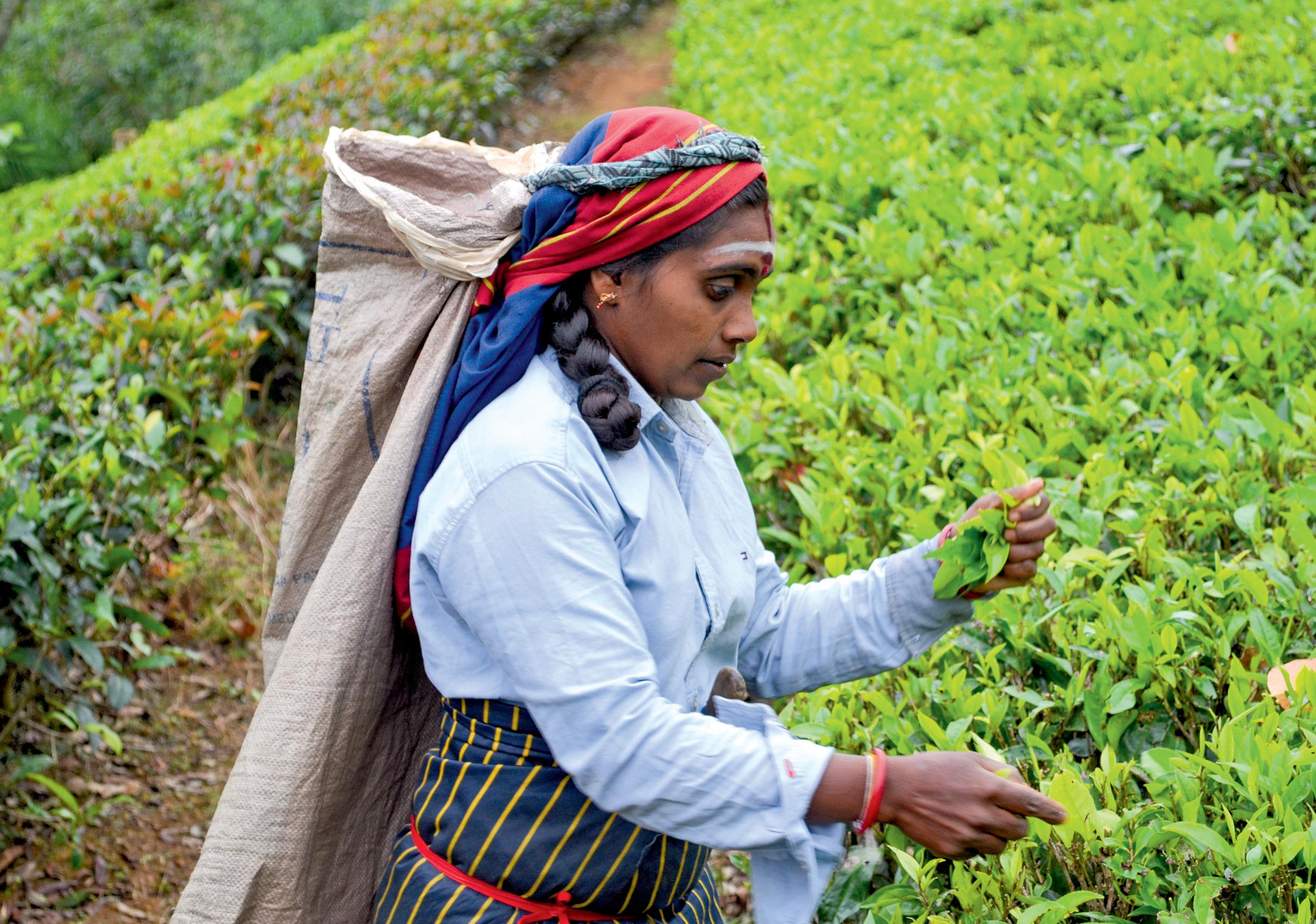Bitter brew Tea pickers highlight unfair practices

Some of the world's leading tea manufacturers, including Tetley and Lipton, are examining working conditions on the plantations of Sri Lankan suppliers, following a Guardian investigation.
Two global trade-certification schemes, Fairtrade and the Rainforest Alliance, are also conducting inquiries after it was revealed that some workers on 10 certified estates could not afford to eat and were living in squalid conditions.
Tea pickers claim estate owners failed to support them during the country's economic crisis, which has seen prices of food, fuel and medicine soar, without wages rising to match.
The pickers reported supervisors refusing to pay them what they were owed and incidences of verbal abuse.
Some said they had so little money they had to skip meals and felt forced to send their children to work.
Tetley said it had suspended work with some central Sri Lankan estates while it conducted its own inquiries.
Ekaterra, which owns Lipton and PG Tips, said it was in contact with the Rainforest Alliance over the findings.
Yorkshire Tea, another company that sources tea from the estates the Guardian visited, said it was speaking to the plantations concerned.
More than 300,000 people work in Sri Lanka's tea plantations, which are mainly in the mountainous Central Highlands. In 2022, the industry generated $1.277bn in exports.
Tea pickers have been struggling since the country was plunged into an economic crisis after a disastrous ban on chemical fertilisers in 2021, which decimated tea yields and caused production to fall to a 26-year low last year. Workers must pick at least 18kg a day to earn 1,000 Sri Lankan rupees (about $3.25)- a fee set by the government's wage board in 2021. If they pick less, they get a lower rate for each kilo.
Esta historia es de la edición June 02, 2023 de The Guardian Weekly.
Comience su prueba gratuita de Magzter GOLD de 7 días para acceder a miles de historias premium seleccionadas y a más de 9,500 revistas y periódicos.
Ya eres suscriptor ? Conectar
Esta historia es de la edición June 02, 2023 de The Guardian Weekly.
Comience su prueba gratuita de Magzter GOLD de 7 días para acceder a miles de historias premium seleccionadas y a más de 9,500 revistas y periódicos.
Ya eres suscriptor? Conectar

'Gone crazy' Escalation in drone strikes as Trump berates Putin
Moscow launched three consecutive nights of massive drone strikes against Ukraine, as Donald Trump broke his silence to suggest the Russian leader, Vladimir Putin, had “gone crazy”.

It's not immigrants who don't 'integrate' with the rest of us-it's the elite
Amid all the acrimony surrounding Keir Starmer's recent remarks on immigration - a row that could follow him into retirement and beyond - there has been one little-examined area of agreement between the prime minister and his critics. “When people come to our country,” Starmer said, “they should also commit to integration.”

Fish meal The hidden impact of farmed sea bass
An investigation reveals how UK consumers buying fish are playing a role in food insecurity and unemployment
A deadly mission
Dom Phillips was working on a book about saving the Amazon when he was killed. In this extract. he reflects on his encounters with the rainforest and its people

Ode to soy The perfect sauce? An expert spills the beans
In the lush foothills of Damyang county, rows of earthenware jars stood under the Korean sky. Inside each vessel, a transformation was taking place. This is the domain of Ki Soon-do, South Korea's sole grand master of traditional aged soy sauce, where patience isn't just a virtue but an essential ingredient.

Soul survivor
With a new album and a boost from Black Mirror, Irma Thomas, the 84-year-old 'Soul Queen of New Orleans', is hitting new heights

'Gone crazy' Escalation in drone strikes as Trump berates Putin
Moscow launched three consecutive nights of massive drone strikes against Ukraine, as Donald Trump broke his silence to suggest the Russian leader, Vladimir Putin, had \"gone crazy\".

Long wait for truth about yacht tragedy
Sicilian fishing village watches the salvage of tycoon’s sailboat for answers on the causes of its sinking

Movies and shakers
Cinema-going has yet to recover from the pandemic drop but key Hollywood figures are working hard to ensure the theatrical experience does not die

Trump card Ramaphosa earns praise for keeping his cool
Many South Africans have praised their president, Cyril Ramaphosa, for staying calm when Donald Trump ambushed him in the Oval Office with a video purporting to back up his false claims of a “genocide” against white Afrikaner farmers.
